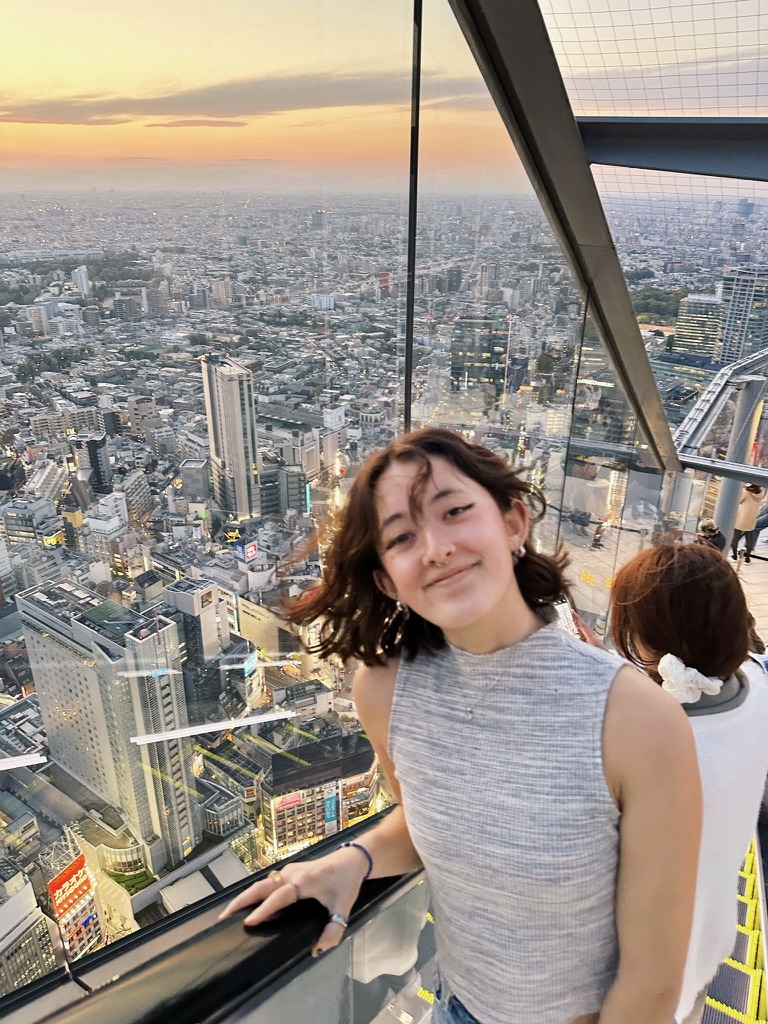Julia Yong has served as a Fulbright Disability Access Research Intern and studied abroad in Tokyo. Julia has personal experience with mental health disabilities, specifically Generalized Anxiety Disorder, OCD, and PTSD. For her project, she plans to create a comprehensive presentation/guide for community college students interested in studying abroad, involving research, surveys, and data analysis.
Introduce yourself. Share information on your disability, and your academic/career interests.
Hello! My name is Julia Yong LaFrance. I do not identify as having a disability. I am a recent graduate from Temple University Honors College with a dual-major in English and Philosophy (Pre-Law) and a minor in Creative Writing. My diverse professional experience in both the educational and legal sectors has shaped my aspirations to work in immigration law. Additionally, I will embark on a Fulbright English Teaching Assistantship in South Korea in 2026!
Describe your international education experience.
In 2023, I studied abroad at Temple University’s Japan Campus for the spring semester. I lived in a quiet suburb of Tokyo located about forty-five minutes from campus in an international dorm. During my time in Japan, I completed a full course load and served as a Marketing Intern for ShapeWin Co. This dynamic, cross-cultural professional experience required me to adapt and respond to language barriers, cultural differences, and a heavy workload. I was also able to travel around the country to Okinawa and Kyoto, as well as spend some time with family in Seoul, Korea.
What was the biggest challenge that you encountered?
The most significant obstacle that I faced while living abroad was a lack of reliable access to mental health care. I struggled with the isolation and culture shock of my abroad experience, exacerbating existing mental health conditions.
Describe your top three gains from your exchange experience.
Prior to my exchange, I lacked confidence in myself, doubting that I would be able to handle several months abroad. Indeed, the primary benefit of my experience was how it reinforced my confidence in myself to navigate difficult situations and adapt to cultural differences. Once back in the US, I felt increasingly more confident navigating my daily life, whether it be professional situations or social ones, knowing that I had this experience under my belt—and thrived.
Secondly, I gained valuable, alternative perspectives on world politics while studying abroad. My classes at TU Japan consisted of Japanese gender studies and the history of Orientalism. Also by speaking with native Japanese students, I gained vastly different perspectives and worldviews than I have ever had access to in the states.
Finally, this abroad experience has opened more academic and professional doors than I ever thought possible. I have leveraged my time in Japan in various interviews to advocate for my unique experience and abilities.
Is there anything about your exchange experience that you would have done differently?
I definitely would have put more safeguards for mental health care in place, prior to going abroad. This could look like designating a mental health care provider in Japan or ensuring that my medications could be filled while overseas. I also believe that living in a studio apartment-style dorm contributed to my isolation, and so I would definitely seek out more socially-oriented living situations in the future.
How did your disability impact or not impact your experience? Did you have to request any support, or take any steps to manage your disability while abroad?
While I do not formally identify as having a disability, I can definitely say that my mental health conditions affected my experience negatively. As it was still wintertime for the majority of my abroad period, I struggled with consistent socializing. Though I did not request any official support while abroad, I reached out to my support system back home, as well as formulated a wonderful community at TU Japan by the end of the exchange.
The Access to Exchange Externship Is a Program of the National Clearinghouse on Disability and Exchange. NCDE is a project of the U.S. Department of State’s Bureau of Educational and Cultural Affairs, designed to increase the participation of people with disabilities in all kinds of international exchanges between the United States and other countries, and is supported in its implementation by Mobility International USA.

